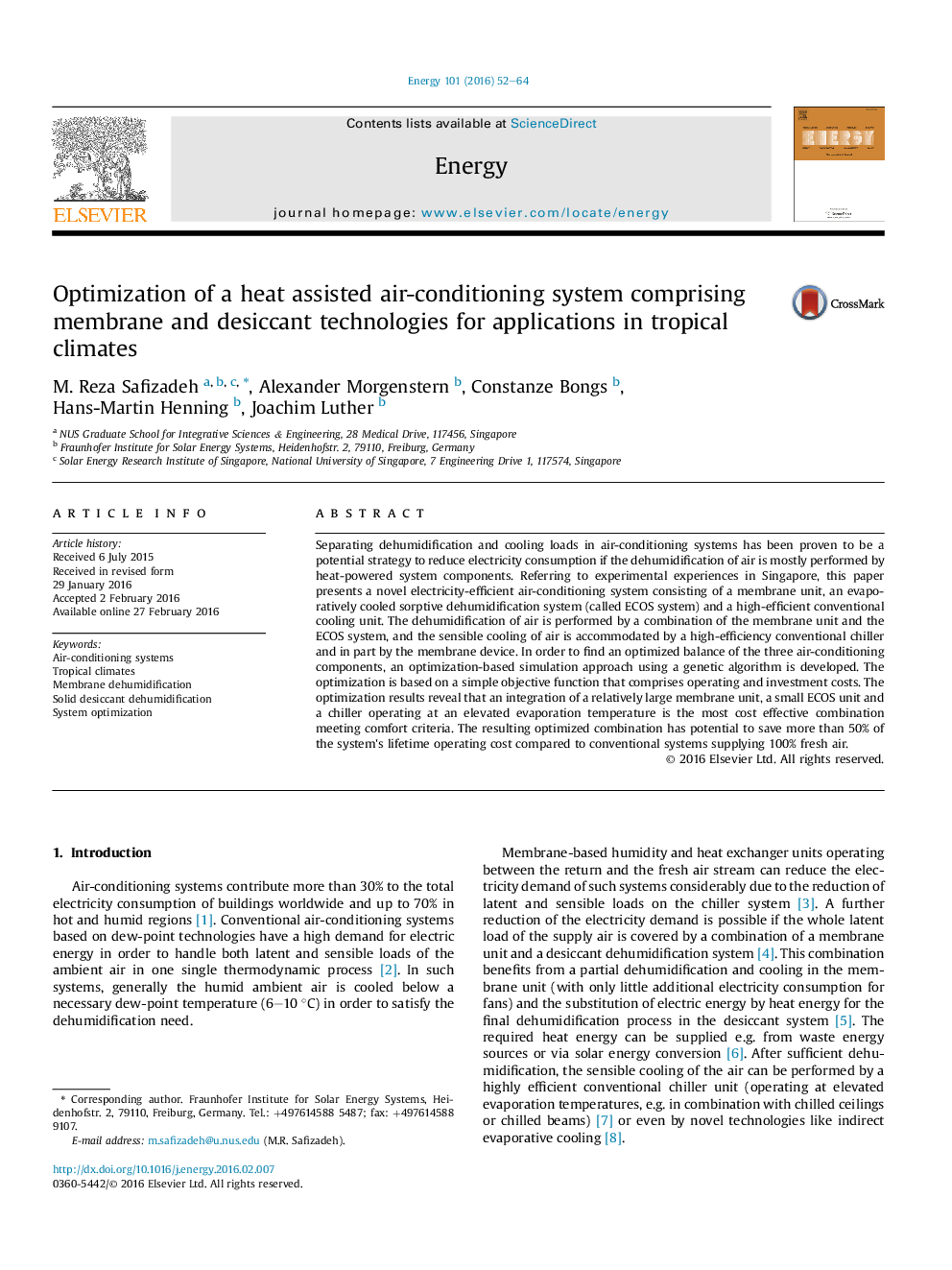| Article ID | Journal | Published Year | Pages | File Type |
|---|---|---|---|---|
| 1731011 | Energy | 2016 | 13 Pages |
•A novel electricity-efficient air-conditioning system is proposed.•The system comprises membrane and evaporatively cooled desiccant technologies.•Independent handling of air dehumidification and sensible cooling is achieved.•Compared to conventional systems electricity is in part substituted by heat energy.•Electricity may be reduced by up to 75% for 100% fresh air systems.
Separating dehumidification and cooling loads in air-conditioning systems has been proven to be a potential strategy to reduce electricity consumption if the dehumidification of air is mostly performed by heat-powered system components. Referring to experimental experiences in Singapore, this paper presents a novel electricity-efficient air-conditioning system consisting of a membrane unit, an evaporatively cooled sorptive dehumidification system (called ECOS system) and a high-efficient conventional cooling unit. The dehumidification of air is performed by a combination of the membrane unit and the ECOS system, and the sensible cooling of air is accommodated by a high-efficiency conventional chiller and in part by the membrane device. In order to find an optimized balance of the three air-conditioning components, an optimization-based simulation approach using a genetic algorithm is developed. The optimization is based on a simple objective function that comprises operating and investment costs. The optimization results reveal that an integration of a relatively large membrane unit, a small ECOS unit and a chiller operating at an elevated evaporation temperature is the most cost effective combination meeting comfort criteria. The resulting optimized combination has potential to save more than 50% of the system's lifetime operating cost compared to conventional systems supplying 100% fresh air.
